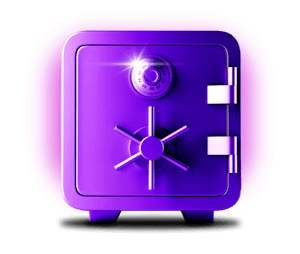
It’s quick and easy
See all fixed rate bonds available in one place. This includes the interest rate you’ll receive, the term of the bond and the minimum and maximum deposits
SUPER SAVE WITH A FIXED RATE BOND
Get higher rates when you lock your money away
Secure your interest rate today
All of our providers are FCA regulated



See all fixed rate bonds available in one place. This includes the interest rate you’ll receive, the term of the bond and the minimum and maximum deposits

You’ll see bonds from providers who are all covered by the Financial Services Compensation Scheme (FSCS) – meaning your money is secure

It’s quick and easy to start saving. It takes just a few minutes to compare fixed rate bonds and open your account online
A fixed-rate bond is a type of savings account that gives you a fixed amount of interest for an agreed period as long as you don’t withdraw your money early.
The interest rates paid on fixed-term bonds can be attractive, but you won’t be able to access your cash for the duration of the bond term without a penalty charge.

With interest rates as high as they’ve been for 16 years, but with many experts predicting they may fall in the coming months, it could be a good time to take advantage of fixed-rate bonds.
For example, if you lock your money away in a 6% fixed rate bond for three years, your return will be guaranteed at 6% for the full term – even if interest rates and as a result rates offered on new bonds fall during this period.

Compare the interest rates available and the length of the bond term before making your choice

Pay at least the minimum deposit into the savings bond. You can’t usually add to your initial deposit at a later date

When the bond matures you can withdraw your money plus the interest it’s earned – which will be at the fixed rate
It often follows that the longer you agree to lock your money away, the higher the rate of interest you’ll be offered with a fixed term bond. The most common terms are:

The amount of interest you’ll earn from a fixed rate bond depends on:
The interest rate
The length of the term – the bond duration
The higher the rate and the longer your money is locked away, generally the more interest you’ll earn. The table shows the return you might make, for example, from a £10,000 deposit where interest is added to the bond each year.
Length of bond | Interest rate |
|---|
| 5% | 5.5% | 6% |
|---|---|---|---|
One year | £10,511.62 | £10,564.08 | £10,616.78 |
Three years | £11,614.72 | £11,789.49 | £11,966.81 |
Five years | £12,833.59 | £13,157.04 | £13,488.50 |
Based on a £10,000 initial deposit – plus compound interest earned over the duration of the fixed savings bond. Interest rates are for illustration purposes only.
There are advantages and disadvantages to fixed rate bonds. These include:
Guaranteed return at the end of the term
Great option for lump sum deposits
Easy to manage online or through an app
No access to your savings for the fixed term
Not suitable for regular savings
Penalty charges or loss of interest if you need the money early
Before you select the best fixed rate savings bond for you, there are a number of things to consider:

Higher rates generally lead to better returns

Consider how long you’re prepared to lock your money away

Fixed rate bonds set limits on how much you can deposit

Check the conditions in case you need to make an early withdrawal
When your fixed-rate bond matures you have the option to:
Withdraw your lump sum – and the interest if you opted to have that paid into a linked savings account – and close the account.
Move your savings into another account – a fixed-rate bond or easy access, for example
Important: Let your provider know what you want to do because if they don’t hear from you they might move the amount to a new account, which is likely to have a lower or zero interest rate.


"If you have a lump sum of money sitting in your current account and aren’t sure what to do with it, a fixed-rate bond could be the ideal option. Savvy savers need to be prepared to lock their money away for a time, but will also know from the outset what return they’ll get when the bond matures. Taking out a fixed-rate bond can be especially worthwhile when interest rates are high and you think they might fall in the future.
"
MoneySuperMarket can help you compare fixed rate bonds all in one place

Just click the button below to see a list of all our fixed rate savings bond accounts, ordered by highest interest rate

Let us know your starting balance and preferred term length and we’ll filter accounts to show you what’s available

When you find the fixed rate bond you want, click straight to the provider to complete your application online today.
We’re aware some fraudsters are trying to use the MoneySuperMarket brand to trick consumers into handing over money or financial details, by offering fake ISA and savings products with eye-catching rates. The best way to stop these scams is to report them.
How do I report an ISA scam?
If you think you’ve been contacted by a fraudster, please stop all communication with them and report it to Action Fraud.
If it’s someone impersonating MoneySuperMarket, please contact our customer services team.
Check out our tips on how to keep you and your family safe from scams.

Fixed term bonds generally have minimum and maximum opening deposits. Some fixed rate bond accounts can be opened with as little as £1, for example, but typical minimum deposits start at about £500. Maximum deposits can go into millions, but remember only the first £85,000 will be protected by the FSCS (where applicable). You may find the most competitive rates require a larger deposit – although, this isn’t always the case. Once you’ve made your initial deposit you can’t usually add to it at a later date.
You will usually need to be 18 or over to open an account in the UK although there are some accounts which can be opened from the age of 16. Junior accounts may be available to open on behalf of children too. In most cases you will need to be a permanent UK resident for tax purposes. Some accounts are online only meaning you won’t be able to open the account over the phone, in branch or by post. Check directly with the provider you choose for specific conditions.
Thanks to the introduction of the Personal Savings Allowance in 2016, basic rate taxpayers can earn £1,000 of savings interest a year without having to pay tax, while higher-rate taxpayers can earn £500 a year. Additional rate taxpayers are not eligible for the Personal Savings Allowance. If the interest you earn goes above these limits, any tax you owe will usually be collected via the Pay As You Earn (PAYE) system or via your self-assessment tax return – unless you opt for a tax-free fixed rate ISA.
You’re unlikely to lose money on a fixed rate bond, but if savings rates rise while your money is locked away at a lower rate, you could end up feeling you've lost out on interest in better paying savings accounts. You can also face a penalty should you need to withdraw your money early.
In some cases, you may be able to access your funds before the end of the bond term, but you’ll usually pay a penalty fee – or you’ll lose interest - for doing so. Check the terms and conditions with your savings bond provider before you sign up to avoid any nasty surprises later.
While both are types of savings account, the main difference is that the interest rate on a fixed rate bond won’t change. In contrast, the returns on a regular savings account may go up and down as the interest rate fluctuates. You also lock your money away for an agreed period with a fixed rate bond, whereas regular savings accounts give easier access to withdraw the cash.
Fixed rate bonds usually have a short window when you open the account in which you can deposit more savings up to the maximum limit. But they are not designed for regular deposits throughout the term, so check the terms and conditions before you apply.
You can compare savings accounts using a number of factors. These include the interest rates they offer as well as how long the rate will last, the amount you might need to deposit in order to open the account, and how you can access the account. Once you’ve decided which account you want, simply click through and you’ll be taken to the provider’s website.
Not sure what type of account to go for? Our Savings Decision Tree can help you decide.
You work hard to earn your money, and we don’t think you should waste a penny of it paying over the odds on your household bills. That’s why at MoneySuperMarket, we’re on a mission to save Britain money.
Whip your credit score into shape with Credit Monitor
Super save over and over again with Energy Monitor
There are always more ways to save with MoneySuperMarket
So how do we make our money? In a nutshell, when you use us to buy something, we get a reward from the company you’re buying from.
You might be wondering if we work with all the companies in the market, or if our commercial relationships with our partners might make us feature one company above another. We’ve got nothing to hide, and we want to give you clear answers when it comes to questions like these, so we’ve pulled together everything you need to know on this page.